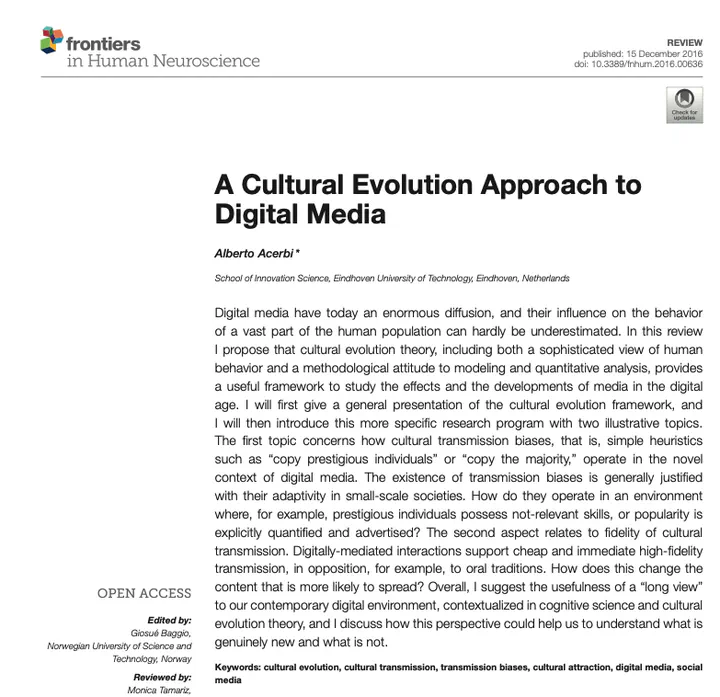A cultural evolution approach to digital media

Abstract
Digital media have today an enormous diffusion, and their influence on the behavior of a vast part of the human population can hardly be underestimated. In this review I propose that cultural evolution theory, including both a sophisticated view of human behavior and a methodological attitude to modeling and quantitative analysis, provides a useful framework to study the effects and the developments of media in the digital age. I will first give a general presentation of the cultural evolution framework, and I will then introduce this more specific research program with two illustrative topics. The first topic concerns how cultural transmission biases, that is, simple heuristics such as “copy prestigious individuals” or “copy the majority,” operate in the novel context of digital media. The existence of transmission biases is generally justified with their adaptivity in small-scale societies. How do they operate in an environment where, for example, prestigious individuals possess not-relevant skills, or popularity is explicitly quantified and advertised? The second aspect relates to fidelity of cultural transmission. Digitally-mediated interactions support cheap and immediate high-fidelity transmission, in opposition, for example, to oral traditions. How does this change the content that is more likely to spread? Overall, I suggest the usefulness of a “long view” to our contemporary digital environment, contextualized in cognitive science and cultural evolution theory, and I discuss how this perspective could help us to understand what is genuinely new and what is not.
Type
Publication
Acerbi, A. (2016), A cultural evolution approach to digital media, Frontiers in Human Neuroscience, 10, 636